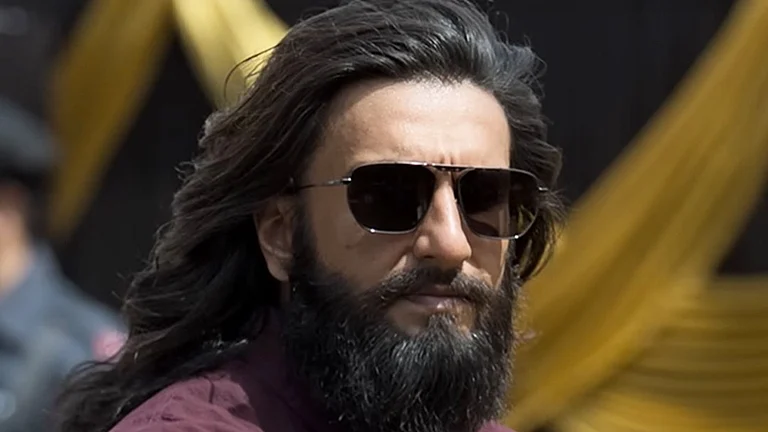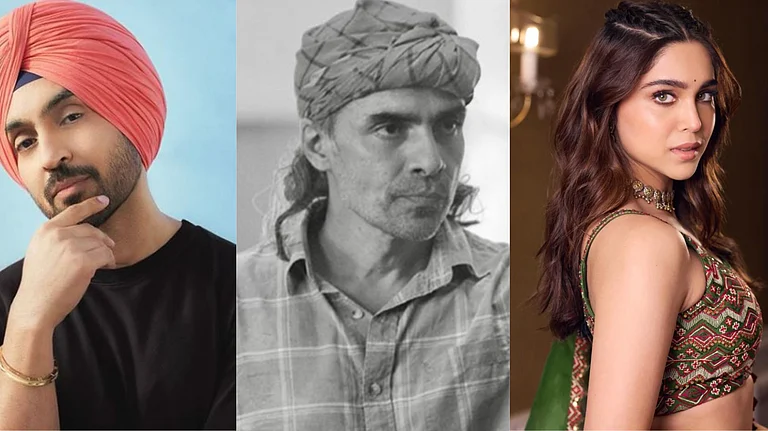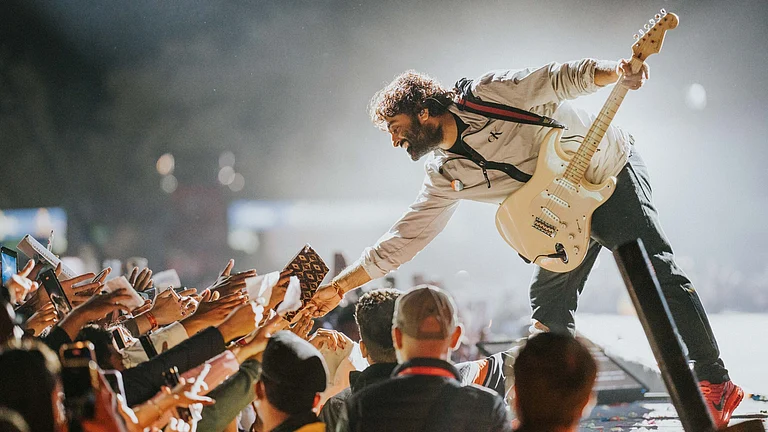Imtiaz Ali’s latest directorial 'Amar Singh Chamkila', headlined by Diljit Dosanjh and Parineeti Chopra, released on Netflix on April 12. The film features Diljit in the titular role of Punjab's original rockstar of the masses, the highest record-selling artist of his time, Amar Singh Chamkila. The film has managed to transport the audience to the rhythmic world of Punjab's folk music, as it tells the untold true story of the artist. The film earned more than 2 million views during the opening weekend on Netflix, besides getting heavily praised by the audience and critics alike.
To say the least, 'Amar Singh Chamkila' has put the Punjabi artist on the map for everyone, but he certainly was a controversial figure of his time. Revealing how and when Netflix decided to come on board the film, Ruchikaa Kapoor Sheikh, Director of Original Films, Netflix, exclusively told Outlook India, “The first time Imtiaz Ali sent me the script, he told me that it’s a small film he’s planning to make and asked me how I feel about it. For a few hours after reading the material, I went on to research more about him, and I was shocked at the amount of success that he reached, becoming the highest record selling artist of his time. But his life was constantly judged and the one thing that stood out for me, and the entire team, was his courage. Every time he took to the stage, it could have been his last akhaada or the last time he interacted with his audience, but he still did it relentlessly, day after day.”
Adding how Imtiaz Ali, AR Rahman, Netflix and the lead actors, Diljit and Parineeti Chopra, wanted to be authentic without seeing the character with any form of judgement, Ruchikaa said, “We don’t tell you how to feel about him.” She added, “Chamkila was shot dead in the 1980s, so there’s an audience that is unaware who he is and there’s an audience who’s obsessed with his music, so we wanted to make sure to put forward multiple points of views about what Chamkila is imagined to be. The rest of the film is for the audience to decide, and the people are drawn to it and have responded to it beautifully.”
Interestingly, the film has resonated with a milieu of audience, not just with those familiar with Punjabi culture and music. In fact, the film has served as a homage to Chamkila’s music, which has found popularity yet again after being sort of lost in the years that passed by. When asked if that was something that the team had in mind, Ruchikaa said, “When we decided to tell this story together, he was an artist from Punjab, but music is so universal that no language or location can tie it down. The universality of music appealed to us. Chamkila’s music is heard across, and we wanted to be right with the music. We already decided that we wanted Diljit and Parineeti to perform in Akhadas with real Chamkila songs.”
Nonetheless, when you think of a music icon and a film based on him, nothing about ‘Amar Singh Chamkila’ is formula like. From a film to use Chamkila’s music in such a way to AR Rahman scoring music for a film based on an artist, it’s a different level of layering, in terms of creativity. Ruchikaa asserted, “It was not easy but it was super exciting. We wanted to be true to his legacy. It’s a straightforward story, but the presentation makes it into an experience.”
The film beautifully shows Chamika’s life and times in a simple and rooted way. However, there is no resurrection of sorts for Chamkila, similar to most lead heroes in biopics. Chamkila is shown to have a dark side – his vulgar lyrics, his idea of hiding his first marriage from Amarjot, his decision to fulfil the audiences’ demand to sing original songs and not religious tracks, despite being warned, and much more. When asked how the team decided the entire portrayal of Chamkila’s character, Ruchikaa said, “We are not judging our protagonist, and just to put everything out there for the audience. What you like and what you pick is certainly the work of cinema. We did not want to fall into the tropes of a biopic and there was no reference point since there has not been a major biopic on a music legend.”
Coming to the casting choices, Diljit Dosanjh perfectly played the musician’s part, but Parineeti came as a revelation to the audience, and she delightfully impressed everyone with both her acting and singing. She did manage to hold her presence despite Diljit in the frame. When asked if there were any apprehensions about casting them at all, Ruchikaa quipped, “When we were making this film, what did not change was the requirement of actors who could shed their star image, and come forth to be the real character on sets. Both of them ceased to be Diljit and Parineeti and came on sets as Chamkila and Amarjot. With Parineeti, there is no heroine like in the part. They managed to shed all their inhibitions on the sets, and that’s it for us. They were fluid with the language and we shot in the interior parts of Punjab, and the two have been extremely committed.”
As for Netflix, it has lately been backing content, based on or inspired by real life events, including ‘Amar Singh Chamkila’, ‘Bhakshak’, ‘The Railway Men’, and many more. Hearing that, Ruchikaa chimed in, “We also did ‘Scoop’, based on Jigna Vora’s book, we also did ‘Gunjan Saxena’. We like telling such stories because people like the authenticity of it. The success of such films lies because it’s about the relatability of human emotions. In between, we do films like ‘Murder Mubarak’, ‘Haseen Dilruba’ because the Netflix slate is also about diversity. There’s also ‘Kho Gaye Hum Kahan’, which talks about living in the digital age. At no point, we want to adulterate the content.”
Certainly, Indian cinema and content is moving towards the idea of pan-India projects, and pan-India stars, with Bollywood stars moving toward South cinema and vice versa. Moving ahead, how does Netflix foresee entertainment in months to come? To which, Ruchikaa signed off by saying, “There’s a huge collection of pan-India films on the platform. ‘RRR’ really blew up on Netflix and the service really propelled the stardom of the stars ahead of the Oscars. So did ‘Gangubai Kathiawadi’, which became hugely popular. So is ‘Guntur Kaaram’. We are at a great point, when it comes to entertainment, because the filmmakers, actors and platforms are all converging together for cinema, and language is no longer a barrier.”


























